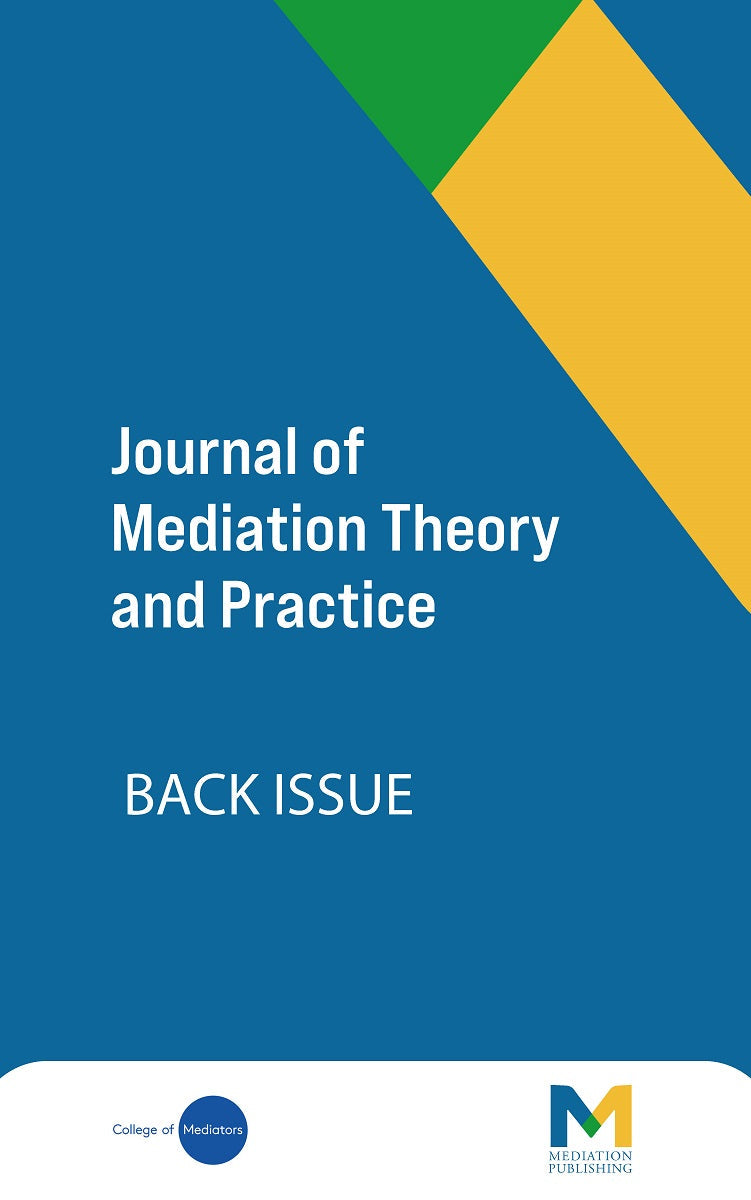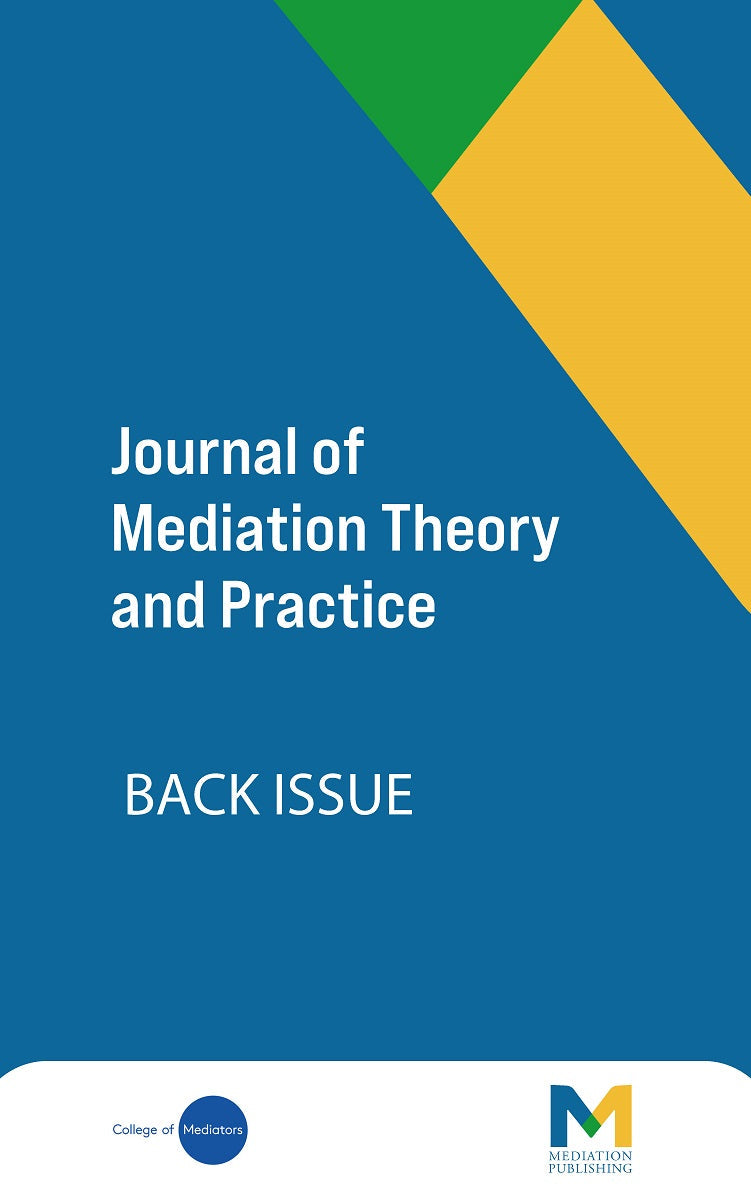Mediation Publishing
Journal of Mediation Theory and Practice Back Issues: 2017-2
Journal of Mediation Theory and Practice Back Issues: 2017-2
Couldn't load pickup availability
The back issue(s) for the year above for the Journal - Mediation Theory and Practice.
These issues were published by Equinox Publishing and will be despatched promptly after order, sometimes separately to other items you might order.
Individual articles are also available for purchase by download separately through the title links.
Contents for 2017-2
Research Article: A listener’s stance-taking in mediation by Matthew Bruce Ingram, University of Texas at Austin and Madeline M. Maxwell. This article analyses a highly acrimonious conflict mediation session between a previous romantic couple in order to illustrate how one listening disputant’s embodied stances influence the trajectory of another disputant’s unfolding narrative. For example, even without speaking, the listener’s facial expression and postures serve to refuse the other speaker’s participant framework. In order to unpack the complexity of this interaction, we drew on both conversation analytic and dialogic notions of stance. We found that to analyse embodied stances in our data requires an understanding of both the local sequential analysis of the unfolding orientations of the participants as embodied stances are being deployed, as well as the larger interactional patterns that occur across the entire mediation session. This case study illustrates the challenge, to mediators and researchers alike, posed by unequal access to the disputant’s shared background knowledge.
Learning from Zuni war gods: repatriating alternative dispute resolution for practice and research by Alexandra Crampton, Marquette University This article applies lessons learned from the Zuni people of the southwestern United States about successful and sustainable intervention as a metaphor to address common tensions among alternative dispute resolution (ADR) scholars and practitioners. These tensions are found in professionalisation, institutionalisation and identification of best practices. Through example of Zuni efforts to repatriate sacred artefacts known as Ahuy: da, I argue that ADR is an intervention that works best through direct and ongoing dialogue rather than rigid adherence to a set of standards. The problem lies in how such adherence can limit and distort rather than inform or support best practices in research as well as mediation practice. I propose qualitative, ethnographic field research as a way to address this problem, and provide an example from ongoing study of a US family court mediation programme.
Shipping & Returns
Shipping & Returns
We ship worldwide.


